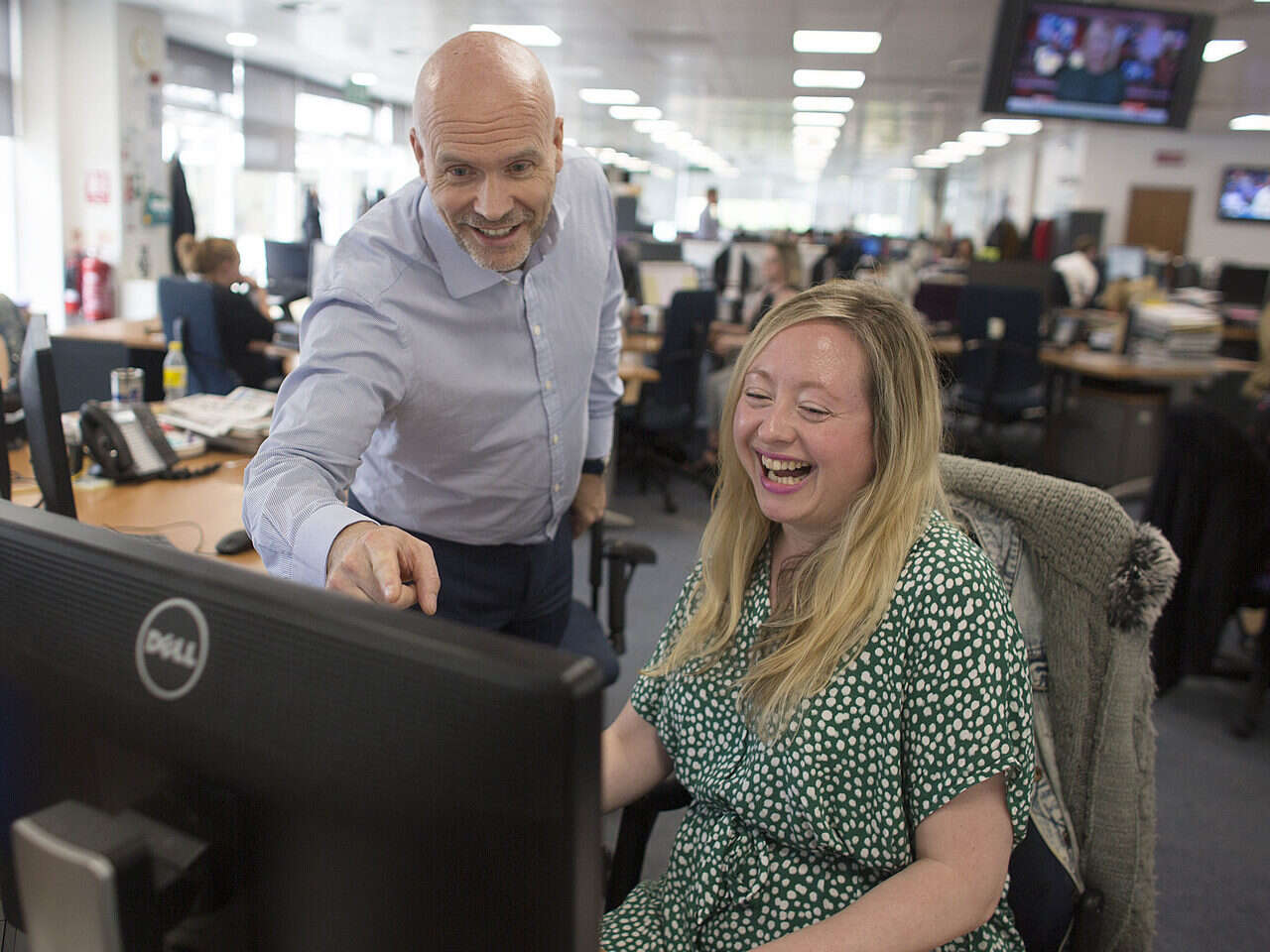
Newsquest Scotland’s editor-in-chief has urged Ofcom to “keep a very careful eye” on the BBC’s online news output, calling for it to be “controlled to make sure that we can have plurality”.
Donald Martin, who edits The Herald and Herald on Sunday, said the BBC’s news operation in Scotland is “hugely resourced and well-funded… a huge news machine” – pointing to its 200 editorial staff plus 80 more hired for the launch of the BBC Scotland channel in 2019.
He suggested the BBC should use this resource to concentrate on investigations and stories of national and regional importance on its website, leaving local news and soft features to commercial titles.
“In my view with that level of dedicated journalism resource in Scotland the BBC has everything it needs to produce major investigations, in-depth news analysis, high-level quality news output, and that’s what it should be judged on and that’s where I see its future lying,” he said at a virtual Westminster Media Forum event on the future of the BBC on 23 February.
Martin (pictured in the Herald newsroom) added: “There should be a greater concentration on quality news, inside analysis and investigations pertinent to Scotland but there needs to be an awareness of the extent of its online coverage on commercial competitors.”
Martin’s comments echoed previous pleas from within the national and regional commercial news sector. In 2018 Reach group editor-in-chief Lloyd Embley accused the BBC of not following the “spirit” of its charter by chasing clicks on online stories, including a glut of content about hit ITV reality show Love Island.
Martin said The Herald could compete with the BBC before the switch to online and advertising revenue and print circulation declines hit the local news sector, noting that it also had 200 journalists “back in the day”.
“We’ve had to cut cost and resource just to sustain the business,” he said. “But it’s coming at a time when the BBC expanded into our territory by building and resourcing its online platform at a Scottish national and regional level.
“It’s a difficult, highly competitive marketplace and for us, we need to raise significant revenue to fund quality journalism but the taxpayer funds quality BBC journalism. That’s great, but the challenge is to what extent it should do so and what areas it’s focused on.”
[Latest ABCs: UK local newspaper sales hard-hit by pandemic with daily market down 27%]
Newsquest has rolled out paywalls on 70 of its biggest websites, saying digital subscribers are “substantially ahead of expectations” and that the model has had “no significant constraint” on its online audience growth.
Martin said this was the future for his titles but warned the BBC put out similar online content for free which “does need to be closely monitored to prevent it having a damaging effect with commercial news suppliers”.
“A key message would be that they need to keep the coverage online at national level and carefully manage and control the amount of regional content and stay away from local for the very future of smaller community titles… I would also restrict the softer feature content online that is not news. It’s part of the traditional package that newspapers and commercial publishers offer and it’s outside of the core news function of the BBC and it begs the question why would people pay for our content when it’s all free with the BBC.
“How can we compete? How can we survive? I’m not saying that what the BBC is doing is a bad thing, it’s doing great journalism, it just needs to watch its reach.”
A BBC spokesperson said in response: “The BBC has always provided a range of news across TV, radio and online to reflect all aspects of life in the UK and to serve all audiences.
“Wider analysis of the industry and international comparisons suggest that it is the erosion of digital advertising revenues and the decline of print and classified adverts which are the biggest challenges to commercial local journalism, not public service journalism.”
Conservative MP Andy Carter, chairman of the All-Party Parliamentary Media Group, told the same event that “there is a role for a regulator to look very carefully at what the BBC are doing”.
“Why, for example, is the BBC offering a very similar cricket programme to Talksport during the test match, when the BBC doesn’t have any commentary rights?” he said. “There’s a question mark that we might want to put against that. Why are the BBC creating new digital channels online when the commercial sector are doing those particularly well?”
The issue was also raised by Steven Barnett, professor of communications at the University of Westminster, who said it is “obviously true that a successful BBC will dent the profitability of companies operating in the same market, just as the NHS impinges on the private practices of Harley Street specialists”.
However, Michelle Stanistreet, general secretary of the National Union of Journalists, warned the BBC is “probably in its most vulnerable state ever undermined by political detractors threatening to whack it, ceaseless speculation over its funding and its future”.
She raised concerns that cuts implemented over the past year, including the cancellation of the award-winning regional current affairs programme Inside Out, “are going to weaken the BBC’s ability even to retain the status quo and some of those cuts are going to impact on local news, and the professional quality broadcasting of programming”.
” I do fear for its ability to carry on doing what it should be able to do best,” she said.
Helen Thomas, director of BBC England, said last summer the intention was to “evolve our local and regional services while improving our impact and better serving our audiences”.
Picture: BBC/Angela Catlin
Email pged@pressgazette.co.uk to point out mistakes, provide story tips or send in a letter for publication on our "Letters Page" blog
